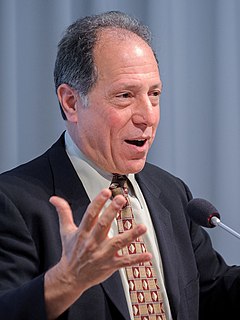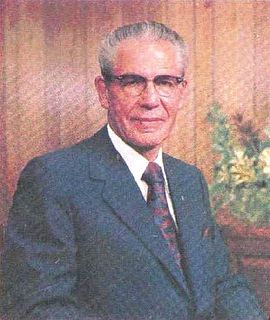Цитата Дороти Дэй
Чего еще хотим все мы, каждый из нас, кроме как любить и быть любимыми в нашей семье, в нашей работе, во всех наших отношениях?
Связанные цитаты
Я считаю, что американцы имеют право. Мы имеем право иметь работу, которая позволяет нам чувствовать, что у нас есть достоинство в нашей жизни, что мы живем честной жизнью, что у нас хорошие семейные отношения, а наши отношения с нашими друзьями, нашими семьями и нашими коллегами обогащают нас. и осмысленно.
Принятие. Мы хотим, чтобы кто-то смотрел на нас и действительно видел нас — наши физические недостатки, причуды нашего характера, нашу неуверенность. И мы хотим, чтобы они были в порядке с каждым квадратным дюймом того, кто мы есть. Мы всегда боимся, что можем оказаться слишком нуждающимися или слишком много работать. Мы накладываем все эти ограничения на себя и свои отношения, потому что боимся, что нас не любят по-настоящему. Что нас действительно не принимают. Мы прячем маленькие частички себя, потому что думаем, что это может быть единственной вещью, которая в конце концов оттолкнет человека, который должен любить нас.
С годами я понял, что когда мне нужны ответы, чтобы справиться с кризисами, людьми и проблемами, я должен обратиться к Богу. Бог поможет нам во всем, что мы делаем, если мы будем в гармонии и если будем призывать Его. Каждый из нас должен планировать с Ним наше будущее в наших домах, в наших семьях и в наших отношениях с другими. Если мы сделаем его нашим старшим партнером, наша жизнь может быть успешной.
Безумие должно прекратиться... Оно затрагивает каждого из нас множеством и гнусными способами: наше представление о себе, то, как мы проявляем себя в наших отношениях и на работе, наше чувство собственного достоинства, ценности и потенциала как люди. Присоединяйтесь к разговору и помогите изменить его.
Мужество и лидерство, которые продемонстрировал «Марш за наши жизни», являются свидетельством силы, которой наша молодежь обладает в этой стране, чтобы сделать нашу страну сильнее, защищая наших друзей, семьи и близких. Работа, которую проделали выжившие и защитники по всей стране, чтобы обеспечить безопасность семей, имеет большое значение.
Ожидание Господа дает нам бесценную возможность обнаружить, что многие ждут нас. Наши дети ждут от нас терпения, любви и понимания по отношению к ним. Наши родители ждут от нас благодарности и сострадания. Наши братья и сестры ждут от нас терпимости, милосердия и прощения. Наши супруги ждут от нас любви к ним, как Спаситель возлюбил каждого из нас.
Поскольку любовь — это великая заповедь, она должна быть в центре всего, что мы делаем в нашей собственной семье, в наших церковных призваниях и в нашей жизни. Любовь — это целебный бальзам, восстанавливающий трещины в личных и семейных отношениях. Это связь, которая объединяет семьи, сообщества и нации. Любовь — это сила, которая инициирует дружбу, терпимость, вежливость и уважение. Это источник, который преодолевает разобщенность и ненависть. Любовь — это огонь, который согревает нашу жизнь беспримерной радостью и божественной надеждой. Любовь должна быть нашей прогулкой и нашим разговором.
Отношения, которые у нас есть с нашими врачами, часто являются самыми доверительными отношениями в нашей жизни. Наши врачи говорят нам горькую правду, которую другие не скажут. Мы часто говорим нашим врачам то, что не скажем другим. Мы доверяем нашим врачам, чтобы они рассказали нам о хорошем, плохом и ужасном состоянии нашего здоровья, чтобы каждый из нас мог принять обоснованное решение.
Наше заблуждение заключается в том, что мы воображаем, что наши страдания или то, насколько сильно или как долго мы скорбим, являются мерой того, насколько сильно мы любили. По правде говоря, никто из нас не хотел бы, чтобы чужое горе свидетельствовало о его любви к нам. Скорее всего, мы бы хотели, чтобы наши близкие жили здоровой и полноценной жизнью без нас.
Заповедь почитать наших родителей отражает священный дух семейных отношений, в которых — в лучшем случае — мы получаем возвышенное выражение небесной любви и заботы друг о друге. Мы чувствуем важность этих взаимоотношений, когда понимаем, что величайшее выражение радости или боли в земной жизни исходит от членов наших семей.
Я обещаю, что если вы будете вести свои дневники и записи, они действительно станут источником великого вдохновения для ваших семей, ваших детей, внуков и других людей на протяжении поколений. Каждый из нас важен для тех, кто нам близок и дорог, и по мере того, как наши потомки будут читать о нашем жизненном опыте, они тоже узнают и полюбят нас. И в тот славный день, когда наши семьи будут вместе в вечностях, мы уже будем знакомы.





































